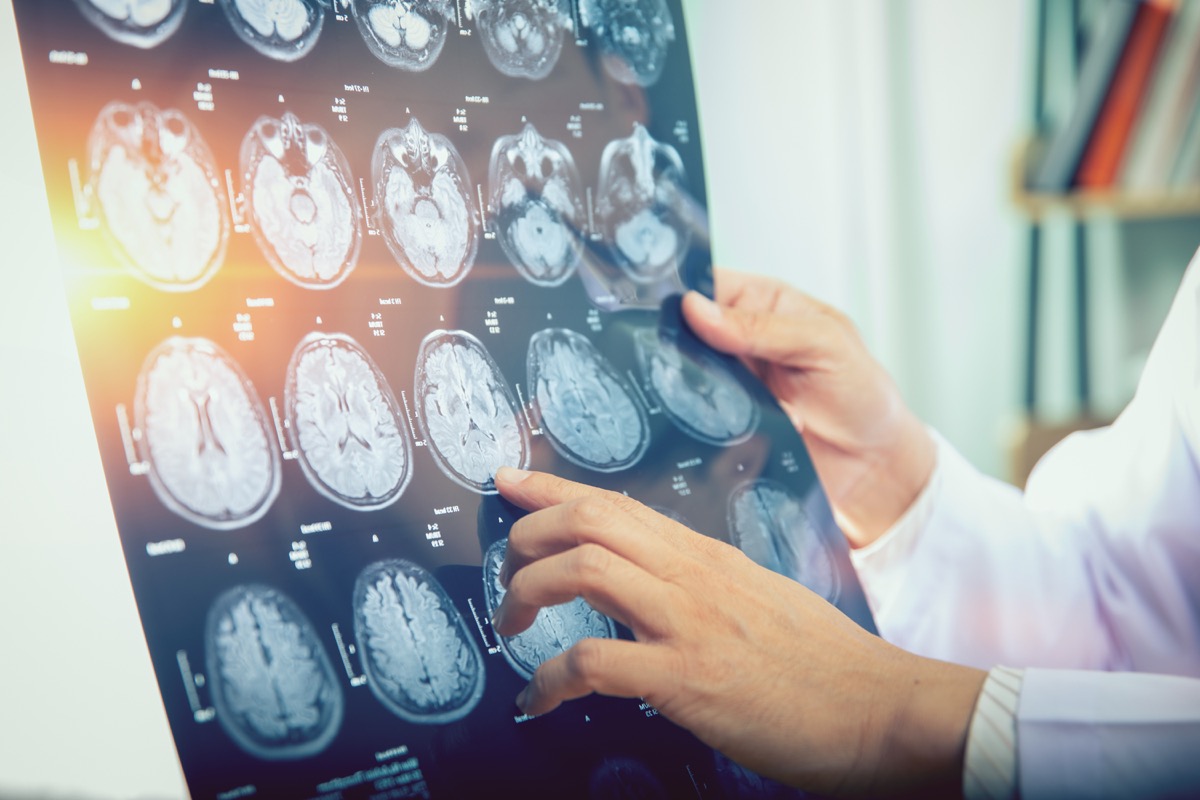The report was inspired by an April study published in the New England Journal of Medicine, which found that 49 of 58 coronavirus patients observed suffered from neurological issues including “encephalopathy”—the general medical term for brain damage—including symptoms of confusion and cognitive difficulty. “We are used to having some patients in the ICU who are agitated and require sedation, but this was completely abnormal,” Julie Helms, MD, an intensive care physician who worked on the study, told the BBC. “It has been very scary, especially because many of the people we treated were very young—many in their 30s and 40s, even an 18-year-old.” Now, there are more than 300 studies from around the world that have documented “neurological abnormalities” in COVID-19 patients, ranging from mild symptoms—like headaches, anosmia (the loss of taste and smell), and tingling in extremities—to extreme cases—including aphasia (losing the ability to speak), seizures, and strokes. “Estimates of exact prevalence vary, but it seems that roughly 50 percent of patients diagnosed with Sars-CoV-2—the virus responsible for causing the illness COVID-19—have experienced neurological problems,” the BBC reports.ae0fcc31ae342fd3a1346ebb1f342fcb “We are facing a secondary pandemic of neurological disease,” Robert Stevens, MD, associate professor of anaesthesiology and critical care medicine at Johns Hopkins Medicine, told the BBC. RELATED: For more up-to-date information, sign up for our daily newsletter. Some medical experts believe that the coronavirus could be in a whole new category of diseases that can directly infect the brain itself, breaking the lining of unique cells that protects it and the spinal cord from viruses and toxins. “If you had asked me a month ago if there was any published evidence that [COVID-19] could cross the blood-brain barrier, I would have said no–but there are now many reports showing that it absolutely can,” Stevens said. But most disconcerting in all of this may be that the side effects created by coronavirus, including those in the brain, can be more long-lasting than the major symptom we’ve all come to know it for. “Even though neurological symptoms are less common in COVID-19 than lung problems, recovery from neurological injuries is often incomplete and can take much longer compared to other organ systems, and therefore result in much greater overall disability, and possibly more death,” Helms said. And for more on the enduring effects of COVID-19, check out 7 Long-Term Health Risks of Coronavirus You Need to Know.
